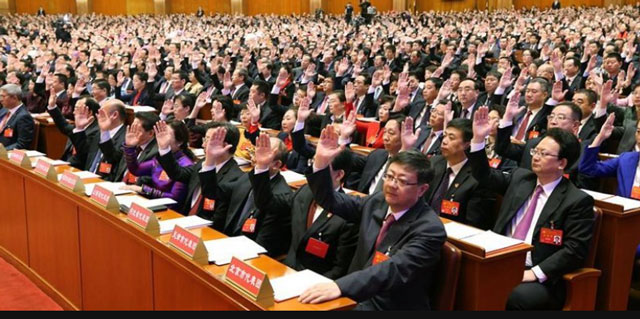
– More control over SOEs –
The party has already moved to strengthen control at state-owned enterprises, with dozens of publicly traded companies in Hong Kong rewriting their business charters this year to formalise the shift.
From plants in southern China, Guangzhou Automobile Group pumps out Honda Odysseys, Toyota Camrys and Jeep Renegades in partnership with foreign automakers. In July, the carmaker revised its business charter.
The CCP constitution was written into the document, according to filings. Major board decisions are now made after first consulting the company’s party committee.
“When the board appoints high level executives, the party committee will deliberate and give opinions and suggestions on the candidates,” a filing said.
Investment fund Blackrock, which holds a 7 percent stake in the company, declined to comment on how it voted on these changes.
A spokeswoman for Guangzhou Automobile Group said the changes were made to “meet party building requirements” and in accordance with business regulations.
“The resolution was approved at a shareholder meeting showing the majority of the company’s shareholders support the resolution,” she wrote in an email.
– Expansion in foreign companies –
The party has also expanded its presence in foreign firms.
Of the more than one hundred thousand foreign-funded companies in China, 70 percent had set up party organisations by the end of 2016, according to Qi Yu, deputy head of the CCP’s Organization Department.
Foreign executives view these organisations within their firms as “a positive force for company development,” Qi said during the recent Beijing congress.
Some of the largest foreign-owned companies in China like Mary Kay and Walmart have opened party branches.
Analysts say these organisations within multinationals are increasingly active, with their activities varying from the mundane like screening party videos to the helpful like communicating nationally mandated priorities.
In some cases, “party cells want to weigh in on strategic decision making,” said Andrew Polk, an economist at Trivium Research.
This summer the European Union Chamber of Commerce in China president Mats Harborn told a meeting there have not yet been any demands to allow party cells to participate in business decisions.
But, if that were to happen, he said, “it would be highly concerning for attracting foreign investment into China”.
 The Independent Uganda: You get the Truth we Pay the Price
The Independent Uganda: You get the Truth we Pay the Price


